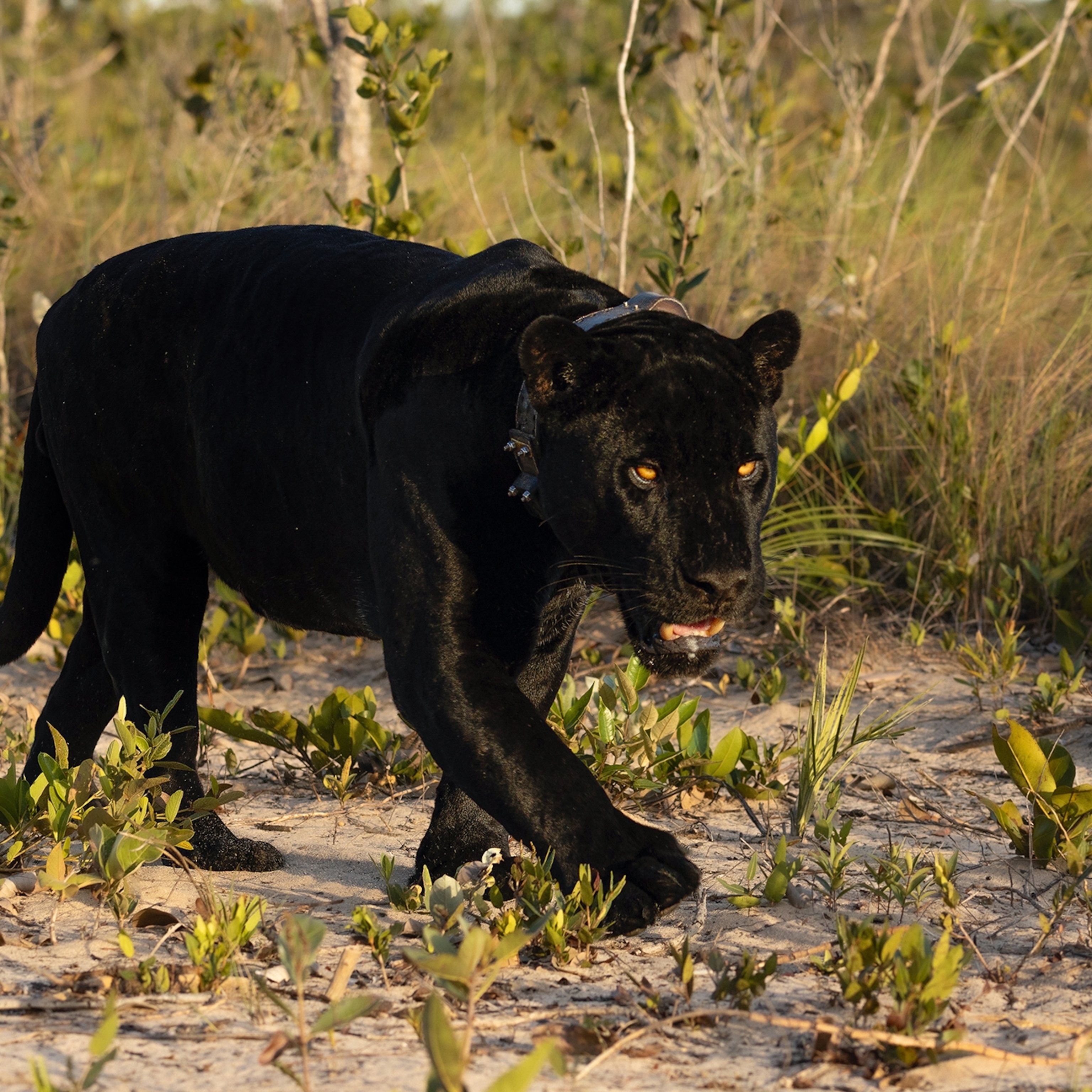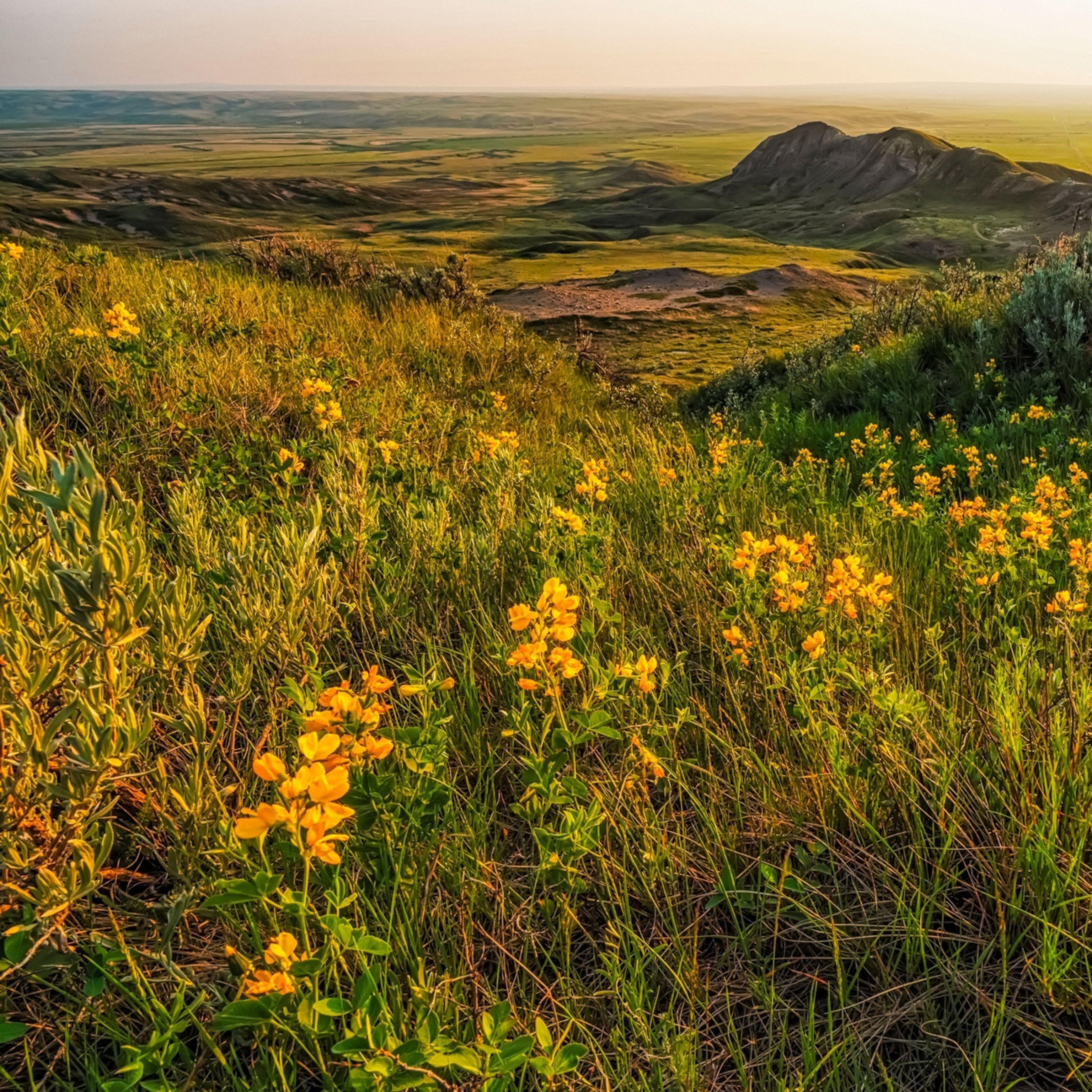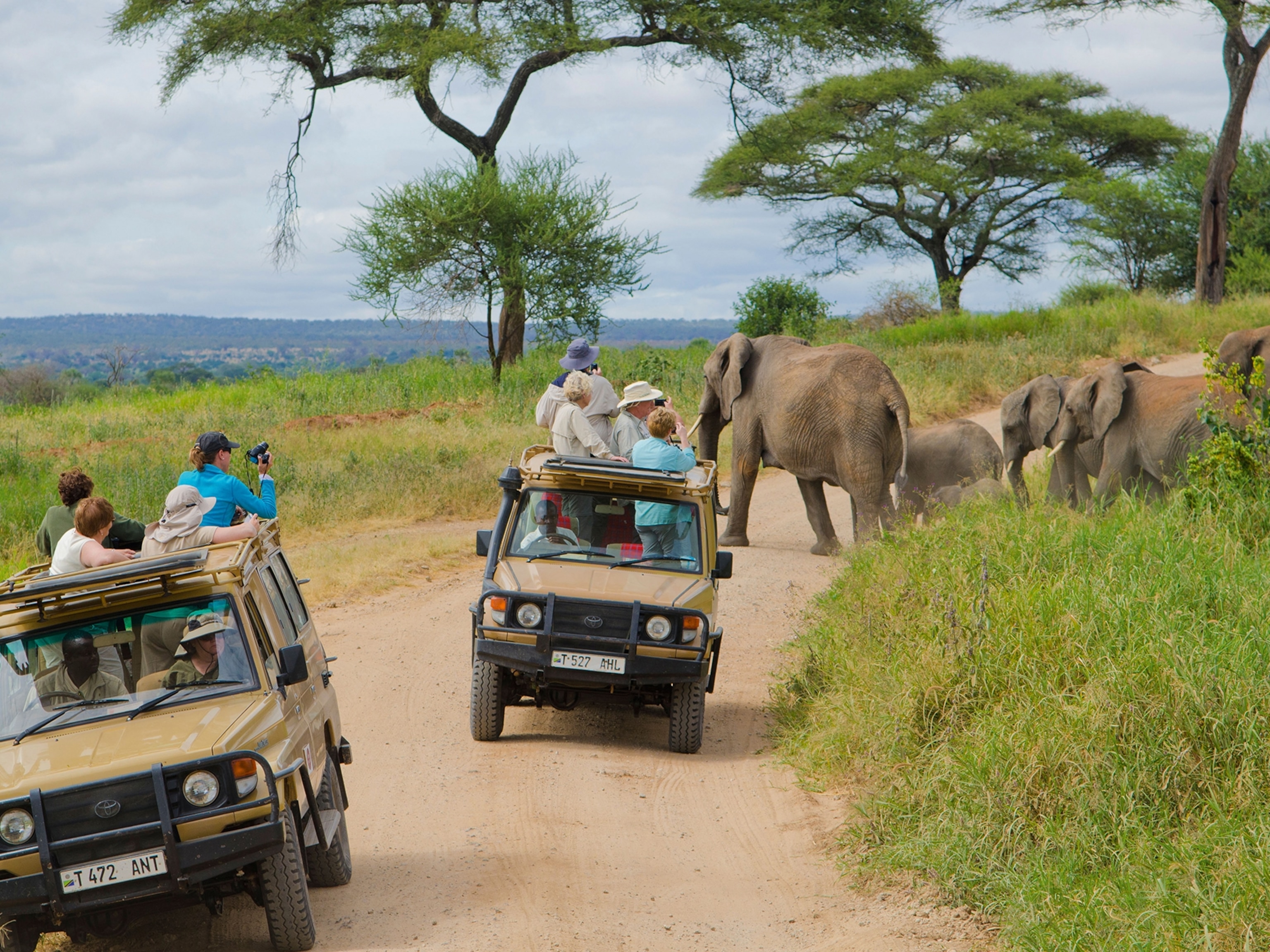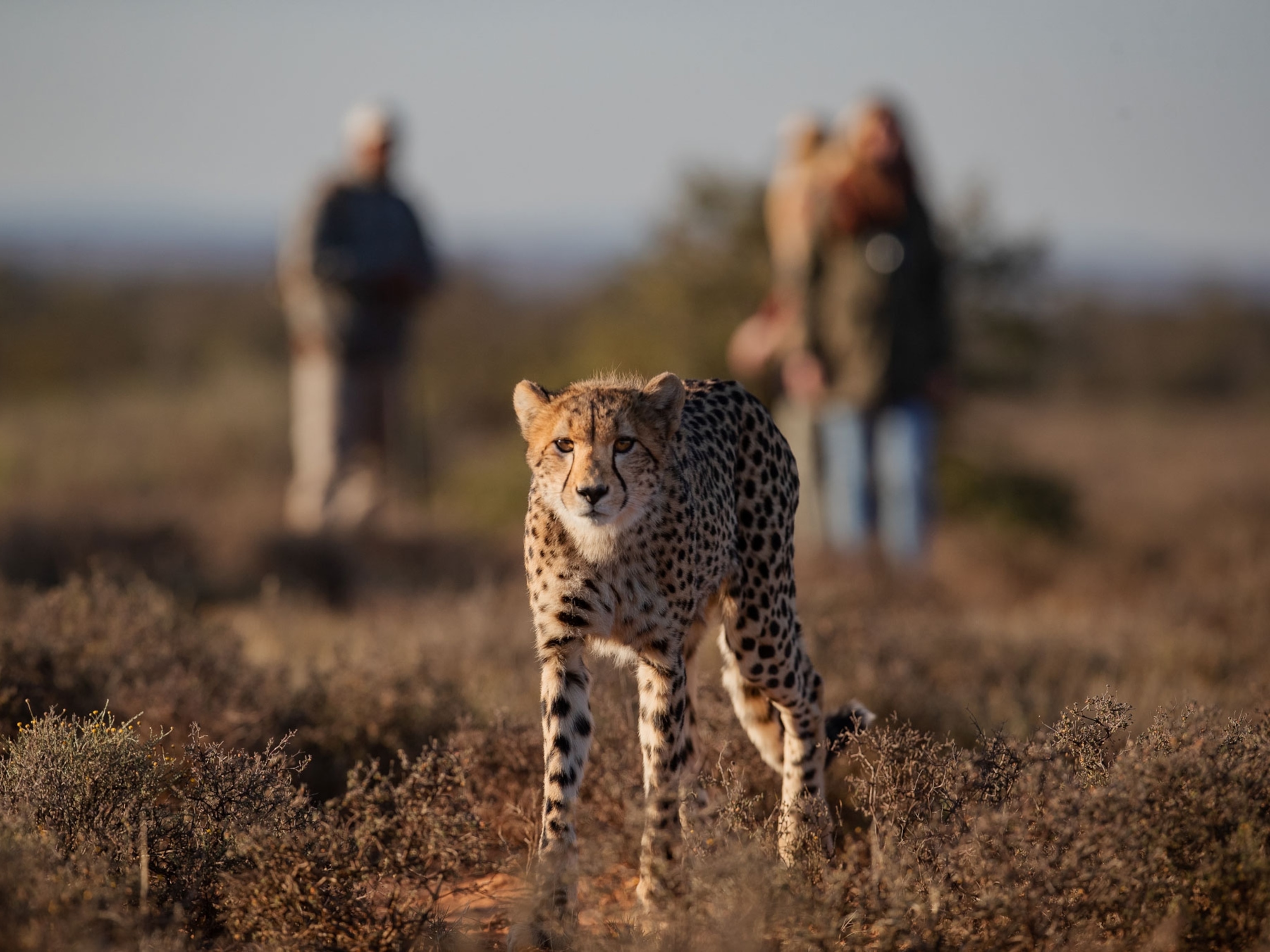
Reinventing the African Safari
One on One
From the April 2011 issue of National Geographic Traveler
In 1993, Ralph Bousfield co-founded Uncharted Africa Safari Company, now billed as “one of the last truly traditional safari operations in Africa.” The company hosts visitors at various classically styled camps in Botswana’s Kalahari Desert, where they can witness migrating wildebeest, watch playful meerkats, and listen to the cry of the hyena. Guests visit ancient baobab trees and venture out onto the dusty Makgadikgadi salt pan, the remnant of a once great lake. Bousfield takes his inspiration from his late father, Jack Bousfield, who was an adventurer and hunter. Today’s safaris, however, eschew guns for cameras and make cultural interactions—with local Bushmen, for example—an important part of the experience.
Your father came from an era that some Africans aren’t particularly proud of. How has your approach to the business changed? Obviously we’re products of history, but we’ve learned so much since my father’s day. We’ve learned about the costs our actions have to the environment. We’ve learned to appreciate the role of wildlife, their movements and migrations. As a company, we try to stay cutting edge, to offer every sort of luxury but also a very personal experience involving wildlife, local people, and experts.
What sort of experiences do visitors have meeting the Bushmen? You’ll experience an enormous collective knowledge of 35,000-plus years, getting an idea of how all of us lived until about 10,000 years ago—as hunter-gatherers. With the men, you’ll experience the making of bows and arrows, tracking, traditional hunting, and the manufacture of medicines from plants and herbs. With the women, you’ll experience collecting and preparing plants—they use about 120 different species—the making of ostrich eggshell beads and jewelry, and the tanning of skins using roots. Probably most important to our visitors is the spiritual element: seeing how these people are absolutely passionately connected to the land and how, through their shamans and healers, they are connected to the spirit world. On the safaris, you spend time with the shamans and watch them do trance dances. It’s a very personal, intimate experience. They’ll ask you to participate in some of the ceremonies they do. It’s not just a “get naked and dance for the tourist” kind of thing. It really provides a proper understanding of what’s going on in their culture. It’s a very rare and authentic experience.
Tell us a bit about your use of helicopters on tours. The helicopter is the latest means of exploring, getting you to places you otherwise simply cannot go. Accessing these areas actually benefits them, because we bring money and attention to places that would be too marginal for us to operate in using trucks. Some people say: “I bet helicopters use lots of fuel.” Actually, they leave a smaller carbon footprint than a big convoy of vehicles would, not to mention avoiding having to build bridges and all that to get the vehicles there. With helicopters you can just hop in. In 2010 we did helicopter trips in the Kalahari, accessing areas with rock art. The previous year we went into northern Uganda, viewing various highland species of wildlife.
Are you optimistic that indigenous communities can preserve their ancient cultures? That’s enormously important, but the preservation takes different forms. Here in Botswana, everybody has to go to school by law, even the traditional cultures, and I think that’s good. Some people, taking a romantic Western perspective, want to see the locals in a sort of arrested development, living in a traditional way like they were an exhibit in a museum. That attitude, though it gives a nice feeling in the short term, is unsustainable. What does get sustained—in terms of the skills and knowledge of a culture—is whatever the world assigns value to. If people look down on someone who lives as a hunter-gatherer, saying, in effect, “You’re close to being an animal,” then the communities will not want to continue that lifestyle. On the other hand, the work we do as safari outfitters gives value to the traditional ways of living—and the traditional knowledge of botany and wildlife, for example. Our work helps preserve the old ways, saying to the Bushmen: “Your knowledge is worth something.” I was discussing our safaris with some Bushmen, and a few of the guys said to me: “We would like to do exactly what you do.” I said: “What do you think I do?” And they said: “We know what you do. You use the knowledge that you inherited from your father. People pay you to do what he taught you. We want to do the same thing with what we know.” I said something like: “You’re so right! You’re right on the money.” And, indeed, the guys were totally getting it. Rather than just looking into the past, they were looking to the future and finding a way to mutually benefit.
Do you retreat into nature to de-stress, to recharge? Yes. We live in the Kalahari, among big, wide-open spaces. It’s a huge environment that puts things into perspective. You feel quite insignificant, not in a negative way but just in how we can sometimes take ourselves too seriously and get caught up in the little day-to-day irritations. I’ve been driving since six o’clock this morning, moving through herds of thousands of wildebeest and springbok and oryx. Being out in raw nature is like meditating, almost as though you are achieving a different state of consciousness. And if I’m having a hard time, I just go for a long walk into that environment. The farther you walk, the smaller you become, and the more insignificant your problems. I always come back from these walks thinking: “Okay, I’m ready to take on the next challenge.”
- National Geographic Expeditions







